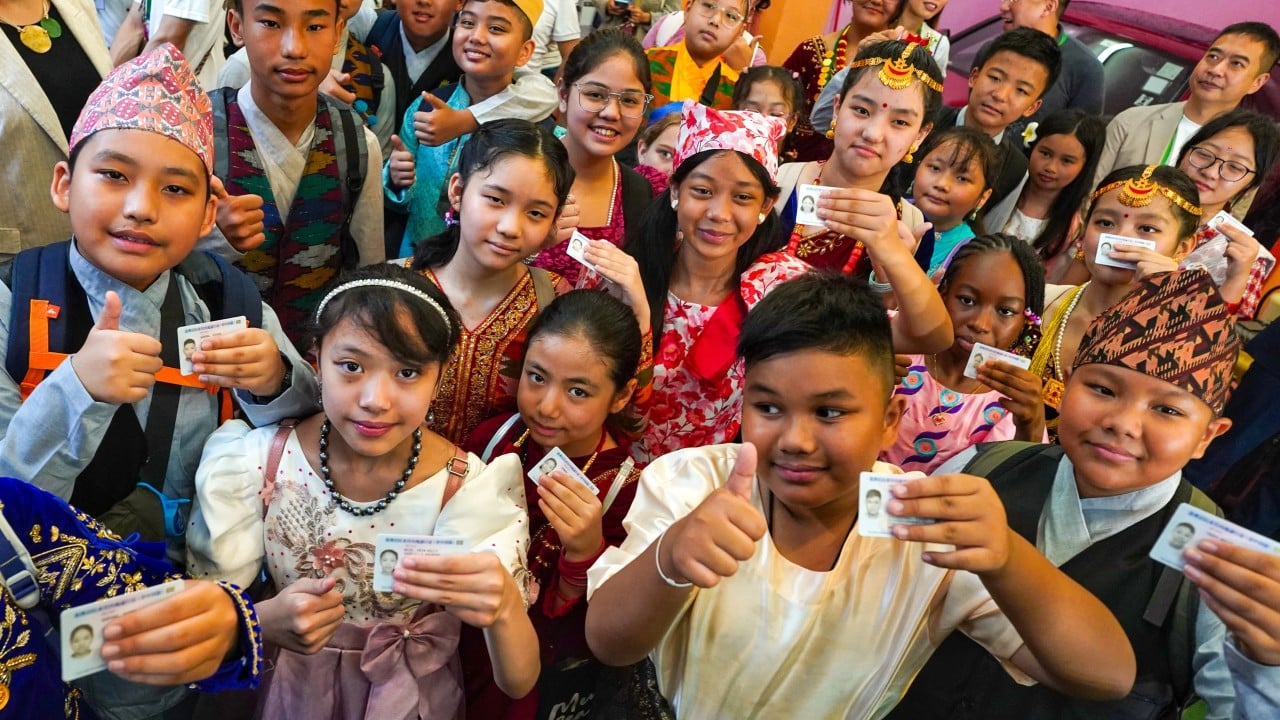A group of ethnic minority pupils in Hong Kong has left for mainland China using new five-year travel permits for non-Chinese permanent residents in the city, the first school tour of its kind designed to foster a better understanding of the nation.
The Yau Tsim Mong Multi-Ethnic Youth Cross-Cultural Innovation Exchange Tour kicked off on Monday, taking a group of more than 20 multi-ethnic pupils from Yaumati Kaifong Association School on a three-day trip in Guangzhou and Foshan.
Cheung Ka-hou, the general director of Yaumati Kaifong association, said the trip would help pupils understand the latest developments in the country.
“Many of the multi-ethnic students are born and raised in Hong Kong, but have few opportunities to visit mainland,” said Cheung ahead of the group’s departure on Monday. “This tour will help them better understand the country and enhance their sense of belonging.”
Starting from July 10, non-Chinese permanent residents of Hong Kong and Macau may obtain a five-year travel permit with multiple entries to the mainland for short-term purposes such as investment, visiting relatives, tourism, business, seminars and exchanges.
The permit holders can spend up to 90 days for each stay on the mainland and enjoy self-service clearance at control points.
Cheung said the permit “makes it much easier” for them to organise such cross-border tours.
“The new permit has a 5-year validity period and unlimited entries, so students with the permit can participate in these tours held by schools and other organisations every year in a timely manner,” he said.
During the tour, pupils will stop by the GAC Technology Museum in Nansha, Guangzhou and Foshan Zumiao Museum, a well-preserved historical Confucian temple and ancestors’ hall, among other things.
Diallo Hafsatu, 12, from Africa, was excited to learn about Chinese culture and arts during the trip.
“I really want to visit the Ip Man Tong in the Zumiao Museum,” said Hafsatu, referring to the hall in the museum which is dedicated to martial arts legend Ip Man.
“As these are world-famous martial arts masters, I hope to be inspired by learning how they persevered.”
Her mother, Diallo Binta, 37, said in the past they had to apply for a visa and pay expensive visa fees each time.
“[In the past] we only had valid permits for like three months, and we are only allowed single entry,” said Binta. “The school is always promoting national security education and we believe that by going to China, it will help us better understand the development of the country.”

Binta expressed her willingness to let her daughter pursue career opportunities on the mainland if they arise in the future.
Calling the Greater Bay Area “one of the most open and economically vibrant regions in China” and “an economic powerhouse”, Woo kin-man, the Under Secretary for Constitutional and Mainland Affairs, said the opportunities available to Hong Kong people, regardless of their ethnicity, are enormous.
“Not only will this card-type document enhance the convenience of clearance at control points of the mainland, it will – more importantly – greatly facilitate cross-border visits by non-Chinese Hong Kong permanent residents, thereby enabling them to seize the historic opportunities, the rapid development of our country and the GBA,” he said.
Woo said Guangzhou and Foshan are advanced manufacturing hubs with extensive applications of robotics, and hoped students interested in these fields would make use of the trip and see the opportunities available.


